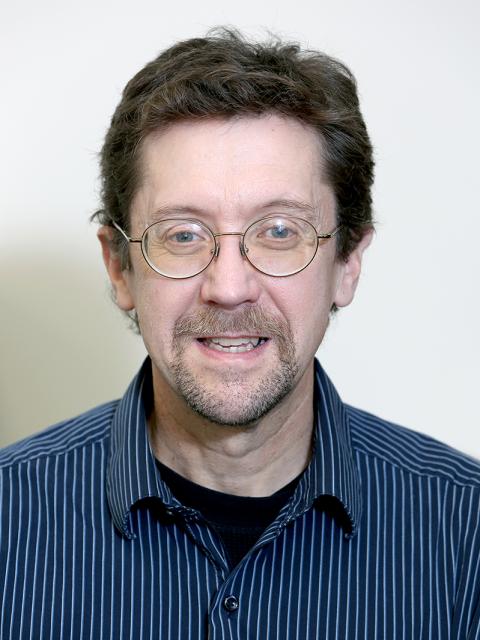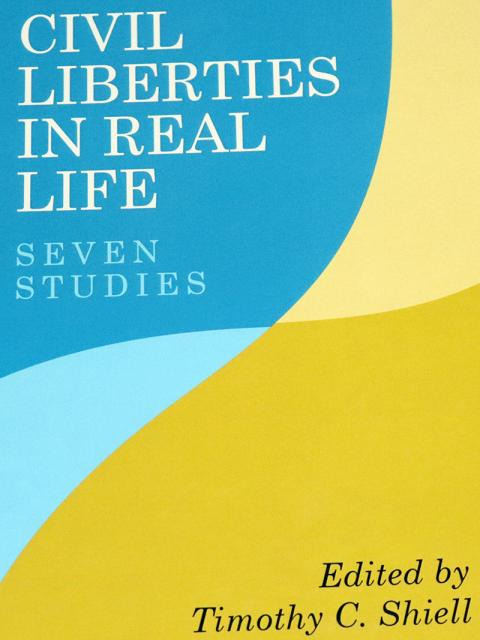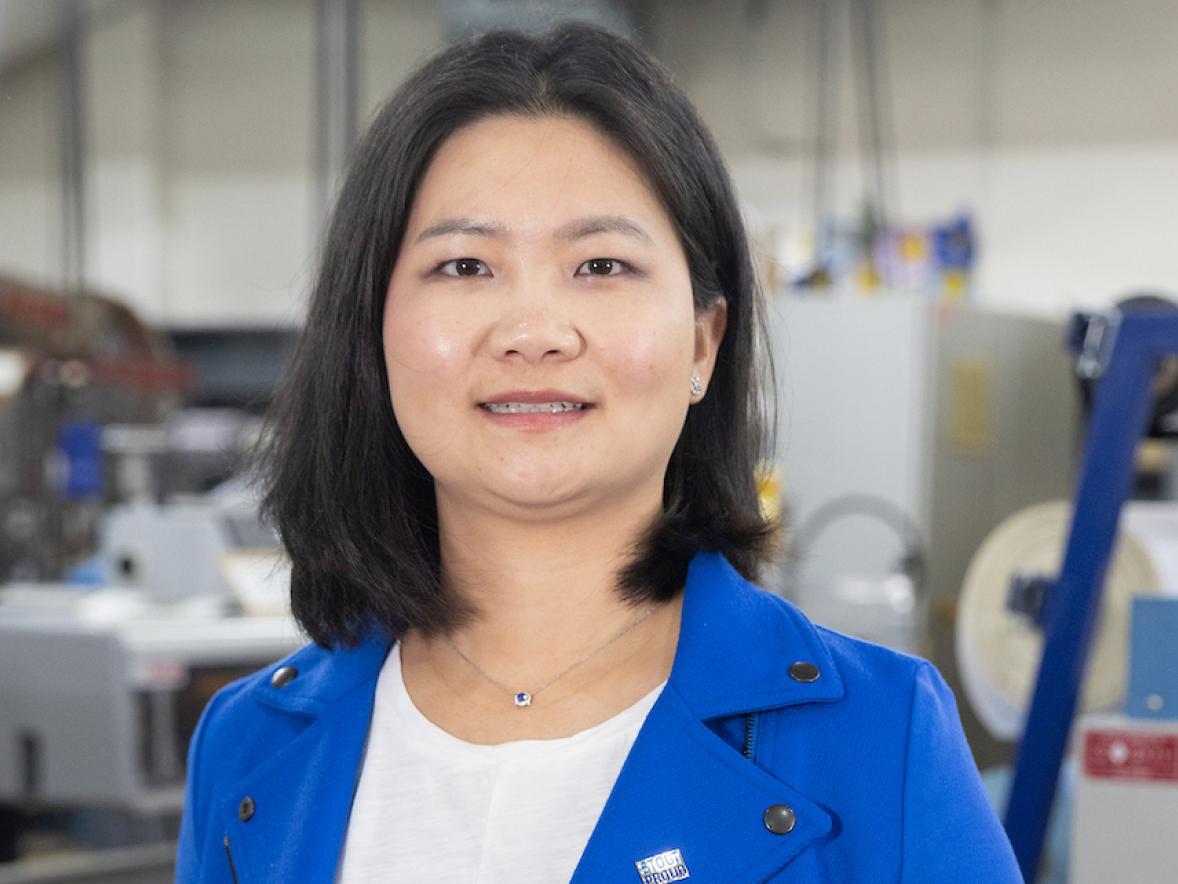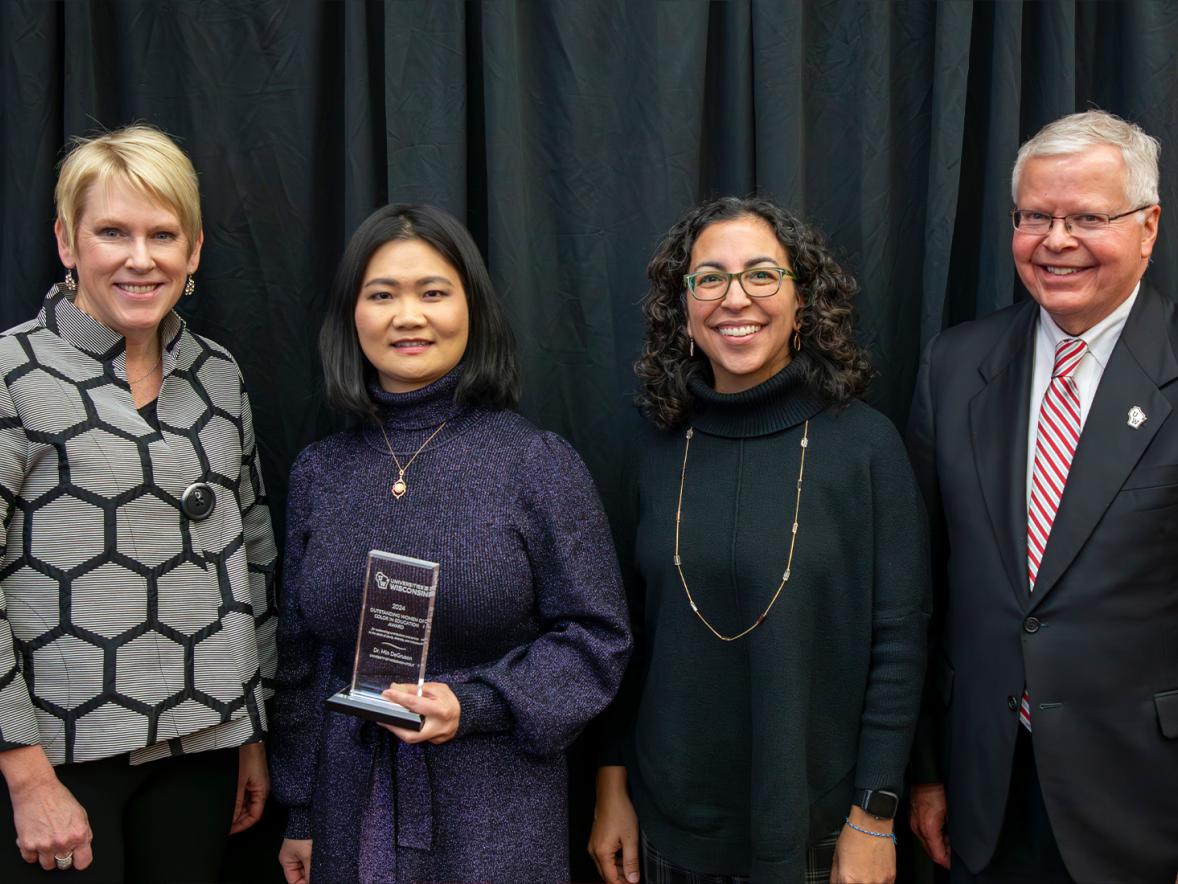A University of Wisconsin-Stout Civil Liberties Symposium sparked the idea for a new book “Civil Liberties in Real Life: Seven Studies.”
The book, published last fall by Cambridge Scholars Publishing of Newcastle upon Tyne, U. K., is edited by Tim Shiell, professor of philosophy, free speech expert and director of the Menard Center for the Study of Institutions and Innovation.
Rickie-Ann Legleitner, assistant professor in the English department, adviser to the women and gender sexuality studies and inclusive excellence action plan coordinator, wrote a chapter for the book titled “Facilitating Difficult Discussions: Politics and Free Speech in the Classroom.”
Shiell said he was approached by the publisher to edit the book based on the 2019 Civil Liberties Symposium held at UW-Stout. “The chapters all address different issues and in different ways,” Shiell said, noting all the authors are from Wisconsin. “That was part of the appeal of doing the book. They all make original arguments, offer interesting perspectives and are solid writing.”
The academic book is very timely given events in the U.S., Shiell said. “Civil liberties are always an important topic, but there are times in history when it becomes even more crucial,” Shiell said.

“The WWI and postwar period, the McCarthy era in the 1950s and the civil rights struggles in the 1960s jump to mind as crucial eras. The Trump presidency, like those eras, has been filled with civil liberty controversies involving free speech, freedom of religion, freedom of the press and so much more. We live in challenging times, times when civil liberties are questioned in many ways by the political left and the political right and a middle ground is hard to find. The more people learn about the meaning and history of civil liberties, and what violates civil liberties, the more hope we have of finding a constructive way forward.”
Shiell said neither the book nor the symposium would have been possible without funding from the John Menard family, which helped fund the study and discussion of civil liberties in Wisconsin. The MCSII’s mission is to promote the study and discussion of civil liberties and related institutions and innovations through scholarly inquiry, educational activities and community outreach.
Legleitner noted that turning her symposium lecture into a book chapter allowed for further exploration of the topic. “To me, writing is a learning process and challenges me to expand on my ideas,” she said.
Student engagement and open-minded discussion
Legleitner drew on classroom experience and offers a series of guidelines for keeping students engaged, open-minded and motivated even when subjects could be divisive or uncomfortable and emotionally charged.
Instructors must collaborate with students to develop a classroom environment policy, with ground rules. “I will ask students what guidelines they want to put in place and allow them to develop those guidelines,” Legleitner said. “We come back to those throughout the semester and revise them. It sets up a more positive environment for people to share their opinions if they know they are not going to be attacked.”
Students are encouraged to listen to each other, rather than concentrate on what they want to say next and open themselves to learning from each other. There is also an emphasis on fact and lived experiences as well, Legleitner said. “In a classroom, if you are going to have a productive conversation, you have to listen. If you go in screaming you will not change people’s opinions, only their opinion of you.”
Listening and questions
Listening, asking questions and learning others’ perspectives help build respect and understanding, even if personal opinions diverge, Legleitner said. Educators should start classes by admitting their subjectivity and acknowledge but also dismantle their position of power.
Legleitner tends to sit down with the students to have discussions. Being humble is important as an educator, acknowledging everyone in the class is still learning, she said.

In classes, Legleitner noted that learning involves moments of discomfort. If students find themselves in the panic zone and having strong responses, they are encouraged to take a timeout. “I do encourage students, if something is overwhelming to them, to step out of the classroom and take a deep breath or come and talk to me one-on-one and figure out why they are having such strong responses.”
Legleitner also makes sure students are aware of campus resources if they need more information on a topic or issue..
Questions are encouraged and rewarded. “Every question is a good question,” Legleitner said. “I know that sounds like a cliché, but it is true. I continually emphasize if you don’t ask, you’ll never know, and this is the place to ask. You are here to learn. That is why you signed up to take a course. This is a space to ask questions.”
Free speech and the First Amendment
Free speech and the First Amendment are also discussed in Legleitner’s classes. The goal is to make sure students understand the rights of free speech but also that there can be ramifications if that right is misused.
Legleitner said having the opportunity to work on the book with Shiell has been a rewarding experience. “He is good at giving guidance while also allowing you to make your own decisions with your piece,” Legleitner said.
Other chapters in the book focus on religious liberty, the reactions of African-Americans to the denial of civil liberties from 1889 to 1929, the shifting of enemies in the fight for civil liberties for Black women, constitutionally protected sexual expression and neoliberalism, biopolitics of food not bombs, capitalism and property rights.
The MSCII, established in 2017 with a donation from the Charles Koch Foundation, sponsors Free Speech Week in October and a Student Civil Liberty Contest as well as other events.






